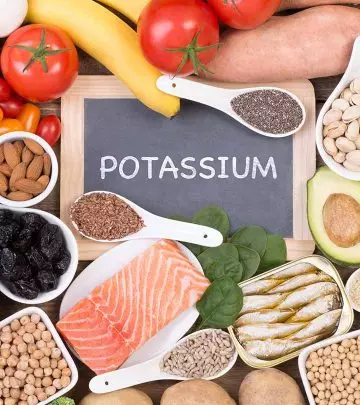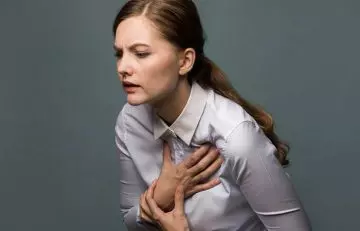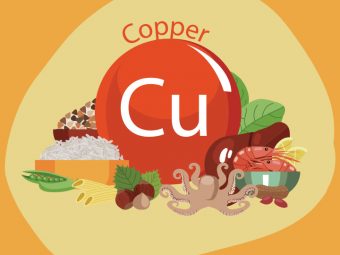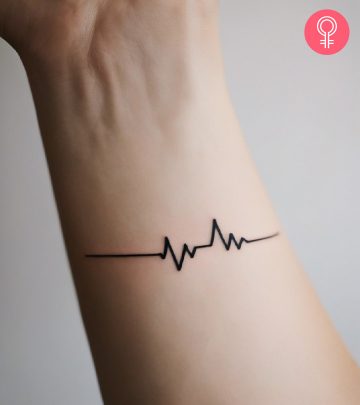7 Signs That Your Body Is Lacking Potassium

Image: Shutterstock
Do you often suffer from muscle cramps, or does your heart regularly skip a beat? Well, don’t dismiss it as one of those times that you’re falling in love, it could be a case of potassium deficiency. Potassium is one of the most important minerals that our body requires. Each cell in the body has some amount of potassium in it. Then, you may ask, how can one be deficient in potassium? Good question! Let’s break it down for you. When we perspire, we don’t just lose water and sodium, there’s a considerable amount of potassium leaving our bodies too (1).
So, the rule is simple — the more sodium we eat, the more potassium we lose. Among the other reasons, a potassium deficiency can occur due to excessive alcoholism, water retention relievers, diarrhea, chronic kidney disease, or it could be associated with a folic acid deficiency (2). A lack of potassium (or hypokalemia) is an immediate red flag for the functioning of the nerves, muscle strength, and the cardiovascular health (3). But, what are the tell-tale signs that hint to you about a potassium deficiency? Here’s what you need to look out for:
1. Unusual Weakness
We all wake up lazy and roll on our beds endlessly, and that’s okay. That’s normal. But, if you feel weak and lethargic even on days that you have received plenty of sleep, eaten well, and have given your body ample rest, then your body is low on potassium (4). The weakness is not just limited to your arms or legs, it can affect your respiratory and gastrointestinal muscles too. Low potassium levels hinder the muscle cells from recharging their energy stores. Frequent muscle spasms, tingling, and numbness in the muscles just indicate that the potassium levels are dauntingly low (5). If you have felt any of these symptoms, make an appointment with the doctor!
2. Frequent Cramping Of Arms And Legs
Potassium helps to start and stop the muscle contractions. A low potassium level negatively affects these contractions and results in cramps that are uncontrollable and prolonged (6). This is common in athletes and gym buffs who work on their bodies quite a lot. So, it is important to keep the potassium levels in check. If you’re someone who is actively training your body, make sure you keep some electrolyte-rich drinks handy.
3. Abdominal Cramps
There are the annoying and painful arm and leg cramps and then there are the abdominal cramps that suck the life out of you. Abdominal cramps are caused due to the malfunctioning intestines and stomach due to a potassium deficiency. Caution, if you’ve been experiencing abdominal pain that is very intense or prolonged, however, please consult a doctor.
4. Irregular Heartbeat
When your muscles are cramping, and when you’re weak and fatigued, how can the heart behave normally? The heart is the most important muscle of the body and it is usually the first to suffer. Your heart tends to suddenly skip a beat or starts to beat rather usually fast or slow (7). There could be many reasons for heart palpitations and a low potassium level is one of them (8). This is because the flow of potassium (to and fro from the heart cells) that regulates the heartbeat is abruptly altered. So, you know what to do if you skip a beat. Rush to the doctor for a check.
5. Dizziness Or Nausea
Potassium is an electrolyte and it is crucial for your kidneys. And when there isn’t enough of the electrolyte in the body, the kidneys stop functioning properly. As a result of this, there is frequent urination. This leads to a loop of problems. Frequent urination leads to a drop in blood pressure. And this, in turn, deprives you of other minerals. So, when the other minerals are lost, the body tries its best to compensate. In this attempt to compensate for the mineral, we end up feeling lightheaded and nauseous (9).
6. Difficulty In Breathing
When the heartbeat becomes abnormal, the blood pumped from the heart to the rest of the body is affected too. Since the blood carries oxygen all through the body, a change in the blood supply affects the oxygen supply too, therefore causing shortness of breath. So, when potassium levels are severely low, there is impaired contraction and expansion of the lungs, which is what causes the difficulty in breathing (10).
7. Too Thirsty
Well, it’s no brainer that if you’re losing water from your body and visiting the loo frequently, you’re also losing a lot of minerals and electrolytes. So, naturally, your body demands more water and you end up feeling thirsty. It’s always important to quench your thirst with water or healthy drinks instead of opting for aerated or cold beverages.
These signs shouldn’t be overlooked as normal but should be paid heed to. The best sources of potassium are naturally found in bananas, avocados, nuts, citrus fruits, leafy vegetables, milk, and potatoes (11). So, get yourself your daily dose of potassium, and stay away from these signs.






























